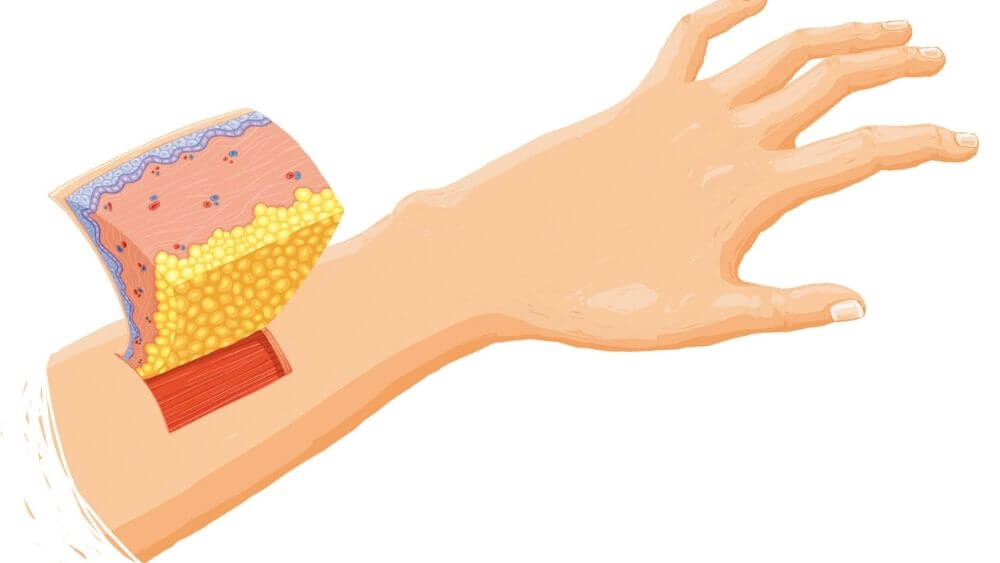Our skin is considered the largest organ of the body. It covers the whole human body. The skin protects us from many harmful external agents. It also regulates body temperature. The sensation of heat, pain, touch is also done through the skin.
Contents
Skin is divided into three layers:
- Epidermis layer.
- Dermis layer.
- Hypodermis layer.
1. Epidermis-
- It is the most superficial layer or the outermost layer of skin.
- Blood capillaries are found beneath this layer.
- It provides protection from pathogenic microorganisms such as bacteria, fungi, etc.
- The epidermis cells regenerate themselves in a period of about 4 weeks or exactly 27 days.
- They keep on regenerating for better results since they play such an important role in protecting the body.
2. Dermis-
- The dermis is the connective tissue present between the epidermis and hypodermis layer of skin.
- The dermis is a fibrous structure made up of mostly collagen and elastic tissue.
- It also includes some other components such as nerve endings, hair follicles and sweat glands.
- The functions of the dermis include protecting the skin and nerves, helping in thermoregulation and also sensation.
3. Hypodermis-
- The hypodermis is also known as the subcutaneous layer.
- It connects the skin directly to inner parts such as bones or muscles.
- It is present below the dermis layer of skin, and it is not always easy to distinguish between the two of them.
Now, let’s get back to our starting question. Does our skin last forever?
No, our skin does not last forever. The skin is made up of skin cells that are constantly dying and renewing themselves. The upper layer of skin, also known as the epidermis, is replacing itself regularly. after a certain period of time. Hence, it is not possible for our skin to last forever.
Fun Facts:
- For a normal person, skin covers about 2 square meters of the area of their body.
- 15% of our body weight comes from the skin.
- Our skin is thickest at our feet, and thinnest at our eyelids.
Additional Questions:
- Explain in detail the different layers of skin.
- What is the role skin?
- Why is skin thickest at legs? Explain.
True or False:
- Skin is considered the largest organ of the body.
- Skin helps in thermoregulation.
- The outermost layer of skin is the hypodermis.
- The blood capillaries are present beneath the epidermis.
- Epidermis change itself in the span of 12 days.
Objective Quiz:
- ______ is the largest organ of the human body.
- Skin.
- Brain.
- Kidney.
- Stomach.
- There are ________ layers of skin.
- One.
- Two.
- Three.
- Four.
- The outermost layer of skin is known as ________.
- Epidermis.
- Dermis.
- Hypodermis.
- All of the above.
- Hypodermis is also known as _______.
- Subcutaneous layer.
- Bony layer.
- Vascular layer.
- All of the above.
- Our skin does not last forever because _________.
- They keep on getting replaced and regenerating.
- They die very soon with no replacement.
- Both 1) and 2)
- None of the above.
